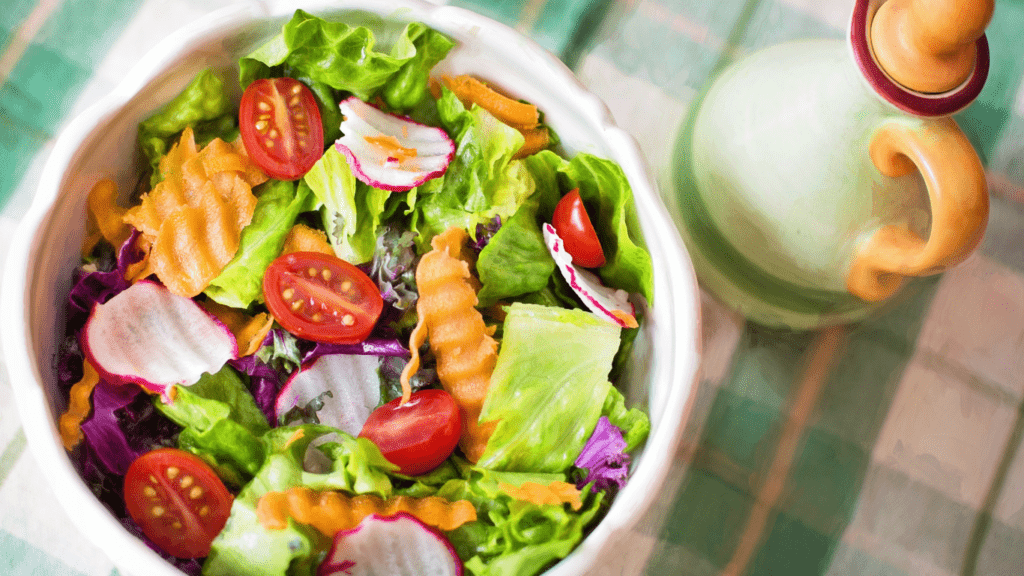Understanding Inflammation and Muscle Soreness
Inflammation is the body’s response to injury or stress. When muscles are overworked, they can become sore.
How Inflammation Affects Your Body
Inflammation can cause swelling, redness, and discomfort. The immune system releases chemicals to protect damaged tissue. These chemicals increase blood flow, causing warmth and swelling in the area.
While this helps repair tissues, it can also lead to chronic inflammation, contributing to various health problems. Chronic inflammation has been linked to conditions like arthritis, heart disease, and diabetes.
Link Between Diet and Muscle Health
Foods rich in antioxidants, vitamins, and minerals can help reduce inflammation. Consuming anti-inflammatory foods, such as berries and leafy greens, supports muscle recovery.
Omega-3 fatty acids, found in fish and flaxseeds, also reduce inflammation. Studies show a diet high in anti-inflammatory foods can decrease muscle soreness and improve overall muscle health.
For example, incorporating turmeric, which contains curcumin, provides a natural way to manage inflammation.
Key Anti-Inflammatory Foods

Incorporating specific anti-inflammatory foods can significantly reduce muscle soreness and promote overall health.
Fruits Rich in Antioxidants
Berries like blueberries, strawberries, and raspberries contain high levels of antioxidants, which help reduce inflammation.
These fruits are rich in vitamins C and E, which protect cells from damage and support recovery. Cherries, especially tart cherries, have anthocyanins that also offer anti-inflammatory benefits.
- Blueberries: High in vitamin C and K; supports muscle recovery.
- Strawberries: Contains folate and manganese; reduces oxidative stress.
- Raspberries: Rich in flavonoids; fights inflammation.
- Cherries: Packed with anthocyanins; reduces muscle pain.
Omega-3 Fatty Acids Sources
Omega-3 fatty acids are crucial for combating inflammation. Fatty fish like salmon, mackerel, and sardines are excellent sources of omega-3s. Plant-based sources like flaxseeds, chia seeds, and walnuts also contribute to your omega-3 intake.
- Salmon: High in EPA and DHA; improves muscle function.
- Mackerel: Rich in omega-3s; reduces inflammatory markers.
- Sardines: Contains protein and omega-3s; aids in muscle repair.
- Flaxseeds: Provides ALA; supports overall health.
- Chia seeds: Loaded with fiber and omega-3s; reduces inflammation.
- Walnuts: Packed with ALA; promotes anti-inflammatory effects.
Spices That Fight Inflammation
Certain spices have powerful anti-inflammatory properties. Turmeric, containing curcumin, is one of the most effective. Ginger and garlic also play significant roles in reducing inflammation and supporting muscle health.
- Turmeric: Contains curcumin; lowers inflammation.
- Ginger: Has gingerols; reduces muscle pain.
- Garlic: Packed with allicin; boosts immune function.
Incorporating these foods and spices into your diet can aid in reducing muscle soreness and enhancing overall well-being.
Incorporating Anti-Inflammatory Foods into Your Diet
Incorporating anti-inflammatory foods into your diet can significantly reduce muscle soreness and improve your overall health. Here are practical ways to make these foods a part of your daily routine.
Simple Dietary Changes for Better Health
I found that adding anti-inflammatory foods to my diet starts with simple changes. Here are some easy adjustments:
- Berries: Include strawberries or blueberries in your breakfast.
- Leafy greens: Add spinach or kale to salads or smoothies.
- Omega-3s: Incorporate salmon or flaxseeds into meals.
- Spices: Use turmeric and ginger in cooking.
Consuming these foods consistently helps reduce inflammation.
Recipes to Reduce Muscle Soreness
I’ve tried several recipes that incorporate anti-inflammatory ingredients:
- Berry Smoothie: Combine 1 cup of mixed berries, 1 banana, 1 cup of spinach, and 1 tablespoon of flaxseeds.
- Turmeric Lentil Soup: Cook 1 cup of lentils with 1 teaspoon of turmeric, 1 chopped onion, 2 chopped garlic cloves, and 1 chopped carrot.
- Salmon Salad: Mix grilled salmon with mixed greens, cherry tomatoes, and a lemon-olive oil dressing.
These recipes not only taste great but also help alleviate muscle soreness.
Benefits of an Anti-Inflammatory Diet
An anti-inflammatory diet offers numerous benefits, particularly for those seeking to reduce muscle soreness and enhance overall health. By incorporating specific foods, recovery and well-being significantly improve.
Improved Recovery Times
Eating anti-inflammatory foods speeds up recovery times. Nutrients such as antioxidants and omega-3 fatty acids reduce muscle damage and inflammation. Berries, like blueberries and strawberries, supply antioxidants that neutralize free radicals caused by intense exercise.
Omega-3 sources, including salmon and chia seeds, help reduce inflammation. Consuming these foods post-workout can lead to quicker muscle repair.
Enhanced Overall Well-being
Following an anti-inflammatory diet enhances overall well-being. Chronic inflammation links to various health issues, including heart disease and diabetes. Leafy greens, like spinach and kale, contain vitamins and minerals that support immune health.
Spices such as turmeric and ginger offer anti-inflammatory properties that improve digestion and reduce systemic inflammation. Including these items in a daily diet promotes long-term health.
These benefits underscore the importance of incorporating anti-inflammatory foods into regular meals. By doing so, both immediate muscle recovery and long-term health are achievable.



